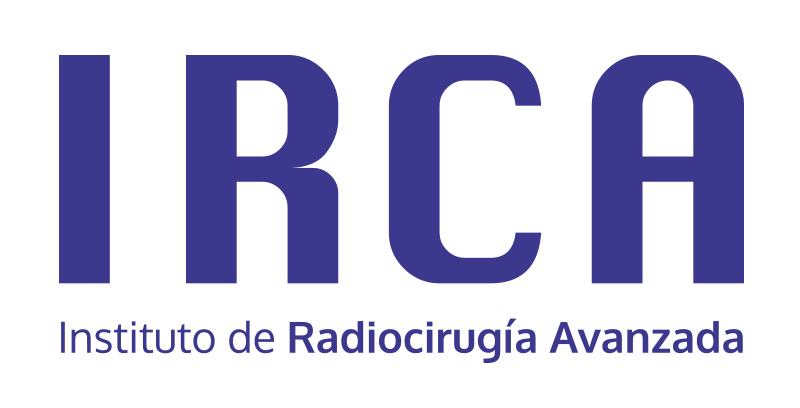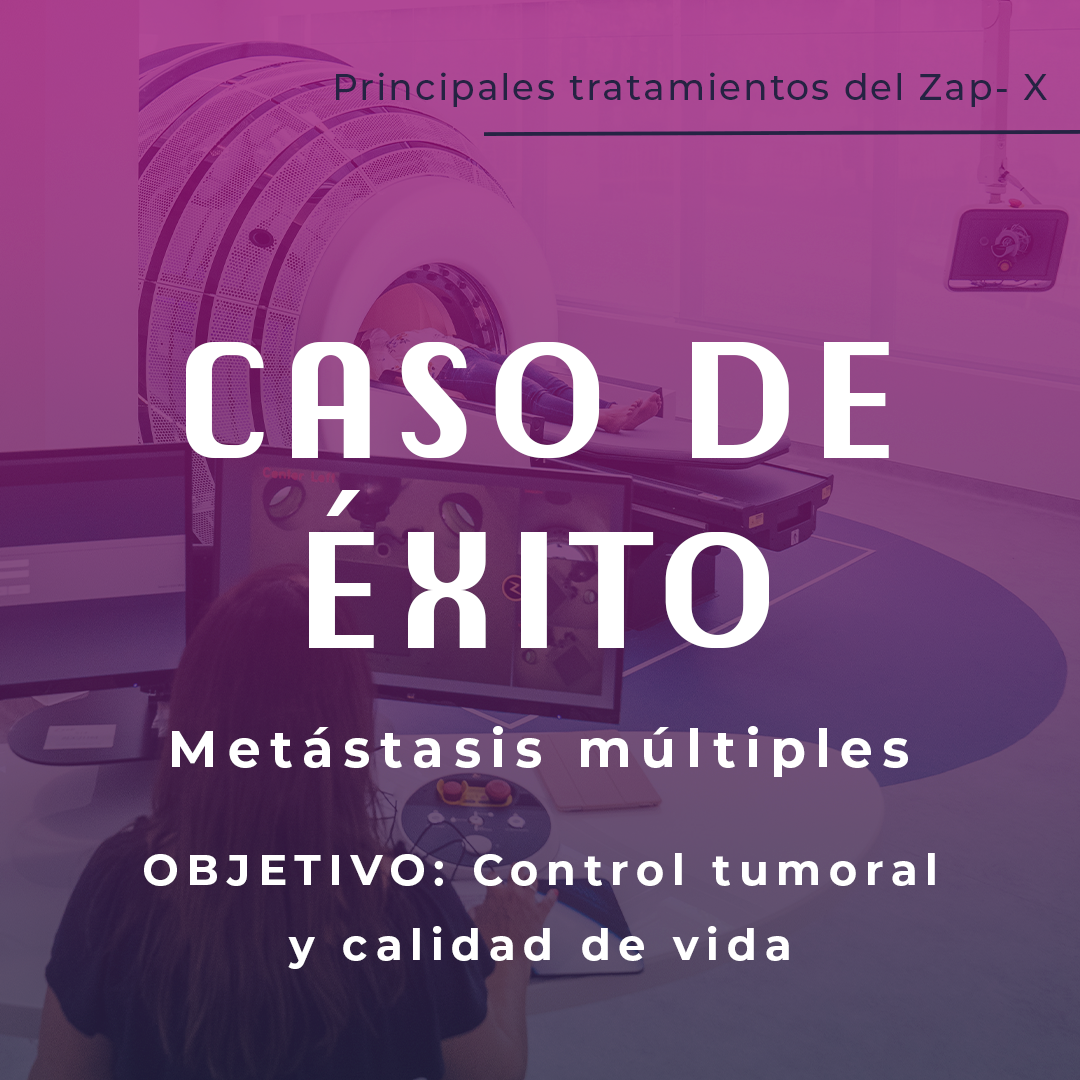Success cases
Radiosurgery in large brain metastases
- Home
- SUCCESS CASES
- Radiosurgery in large brain metastases
🩺Radiosurgery in Brain Metastases: Transforming Patient Prognosis
Radiosurgery in general, and ZAP-X in particular, have become a revolutionary advance in the treatment of brain metastases. These techniques and new technologies offer great hope because, unlike traditional surgery, which is often more invasive and risky in the brain, radiosurgery uses radiation beams focused with submillimeter precision.
This allows cancer cells to be targeted at the exact site of the metastasis, preserving the surrounding brain tissue.
ZAP-X has proven to be highly effective in reducing and even eliminating brain tumors, improving patients’ quality of life and offering a much more comfortable and safer treatment than other radiosurgery techniques.
At IRCA, we combine this magnificent technology with an excellent team of specialized medical professionals who have achieved magnificent and promising success stories with our patients.
A great example is shown below, where the focus of treatment was multiple large brain metastases.
🩺Before and After: Impact of Radiosurgery on Brain Metastases and Quality of Life
In this case, the patient is a 54-year-old man diagnosed with esophageal carcinoma.
He presented with initial symptoms of speech and gait disturbances that clearly indicated the severity of the situation.
As a result, the necessary tests were performed, and he was diagnosed with seven large brain metastases.
This posed a significant medical challenge, as we will explain below.
Why do large brain metastases pose such a major medical challenge?
There are several reasons why large brain metastases pose such a major medical challenge, which is why this IRCA and ZAP-x success story in radiosurgery for brain metastases is such a milestone:
- Compression and Displacement of Brain Tissue: Large metastases can compress and displace normal brain tissue, which can cause severe neurological symptoms such as headaches, seizures, and focal neurological deficits.
- Brain Edema: Large metastases are often associated with significant edema (swelling) around the tumor, which can increase intracranial pressure and worsen symptoms.
- Poor Prognosis: Large metastases usually indicate advanced disease and may be associated with a poorer prognosis, as they reflect a higher tumor burden and more aggressive cancer.
These factors, combined with the complexity of the location, make the management of large brain metastases a significant challenge for physicians, requiring a personalized approach for each patient.

🩺Positive Results with Radiosurgery in Brain Metastases at IRCA: A More Detailed Analysis
In this case, the patient is a 54-year-old male diagnosed with esophageal carcinoma.
He presented with initial symptoms of speech and gait disturbances that clearly indicated the severity of the situation. The necessary tests were performed, and he was diagnosed with seven large brain metastases. This posed a major medical challenge due to the complexity of their location and size.
Treatment planning
For the treatment of this case, three radiosurgery sessions were planned to address the four largest lesions, which, thanks to ZAP-X technology, could be performed with great precision and in a minimally invasive manner in the affected areas.
A single session was then planned to treat the smaller lesions, ensuring maximum efficacy and destroying the malignant cells while preserving healthy brain tissue.
After two months, the patient was tested and clinical improvement was observed with an almost complete response of the seven lesions. The multidisciplinary approach and the use of advanced ZAP-X technology made it possible to completely treat the metastases, improving the patient’s quality of life from the first day of treatment.

A great team makes all the difference
Our unique technology is our added value, but it requires the skill and excellence of a great team, which in the case of IRCA sets us apart from other options.
We are characterized by a perfect combination of the most advanced radiosurgery system technology and the medical excellence of our entire team.
At IRCA, we work every day to achieve the best results for our patients.
Our medical team is led by the renowned neurosurgeon Dr. Kita Sallabanda. You can meet our team by clicking on the link “IRCA Team.”
If you need more information about the treatments we offer at our center, please contact us by phone at 911 091 946 or by email at cfernandez@institutorca.com.


